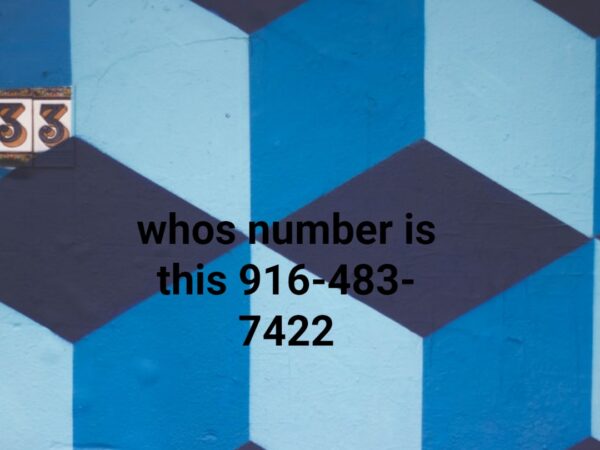You Need To Know About Before Search floret_joy

In today’s digital age, social media platforms can be a double-edged sword. They offer incredible opportunities for self-expression and connection but also harbor unexpected challenges. One persona that has captured significant attention is Floret_Joy. This online figure has become synonymous with controversy, especially regarding the content they promote. As many users are drawn into the allure of trending personalities like Floret_Joy, it’s crucial to take a step back and examine what this means for our online culture—especially when discussing sensitive topics such as sexualized content. Understanding these dynamics can empower individuals to navigate their digital experiences more safely and responsibly. Let’s delve deeper into who Floret_Joy is and why their influence matters now more than ever.
Who is Floret_Joy?
Floret_Joy is an enigmatic figure in the vast landscape of social media. Primarily known for their vibrant and eye-catching posts, this user has attracted a following that eagerly engages with their content.
What sets Floret_Joy apart is a unique blend of aesthetics and provocative messaging. Their ability to tap into current trends makes them particularly appealing to younger audiences. Through colorful imagery and bold captions, they create an environment where followers feel both intrigued and challenged.
However, the persona also raises eyebrows due to its overt sexual undertones. This combination of allure and controversy keeps discussions alive across forums, drawing in people from various backgrounds who want to understand what drives the fascination surrounding Floret_Joy.
The Controversy Surrounding Floret_Joy’s Online Persona
Floret_Joy has sparked significant debate online. Her persona, characterized by bold and provocative content, challenges conventional social media norms. Critics argue that her image promotes unrealistic standards of beauty.
Many feel this kind of representation can lead to negative self-image among young followers. The sexualized nature of her posts raises concerns about the messages being conveyed to impressionable audiences.
Supporters, however, claim she empowers individuals to embrace their sexuality and express themselves freely. This divide highlights a broader cultural clash regarding personal expression versus public responsibility in digital spaces.
The ongoing discourse around Floret_Joy underscores the complexities of modern social media dynamics. Users are left questioning where boundaries should be drawn when it comes to online personas and influence.
The Rise of
The rise of Floret_Joy has captivated many online. Her content, often centered on provocative themes, quickly gained traction across various social media platforms.
With a blend of humor and bold visuals, she carved out a niche that appeals to diverse audiences. This approach drew both followers and critics alike, igniting discussions about the nature of digital personas today.
As her popularity surged, so did debates over the implications of such eroticized content. Many argue it normalizes objectification while others celebrate self-expression.
Young users are particularly impressionable. They may struggle to differentiate between healthy exploration and harmful stereotypes influenced by figures like Floret_Joy.
This phenomenon sparks conversations about identity in the age of algorithms and instant gratification. The rapid spread of information creates an environment where boundaries blur easily.
Negative Effects of Promoting Sexualized Content
The promotion of sexualized content has far-reaching effects on society. It often distorts perceptions of intimacy and relationships, particularly among young viewers who may not yet understand the nuances of consent and healthy interactions.
In many cases, this kind of exposure can lead to unrealistic expectations about bodies and behavior. It creates a culture where worth is measured by physical appearance rather than character or intellect.
Additionally, it can contribute to mental health issues like anxiety and depression. Constant comparisons with idealized images foster feelings of inadequacy in individuals struggling with self-acceptance.
Furthermore, normalizing such content raises questions about respect for personal boundaries. The line between entertainment and exploitation becomes blurred, making it crucial to address these concerns seriously in our digital landscape.
How to Protect Yourself and Your Children from Inappropriate Online Content
Protecting yourself and your children from inappropriate online content is crucial in today’s digital age. Start by implementing parental controls on devices. These tools can help filter out explicit material.
Encourage open conversations about online safety with your kids. Discuss what they might encounter and how to handle it. This dialogue fosters trust, making them more likely to share their experiences with you.
Utilize browser extensions designed to block harmful sites. Many of these options are user-friendly and effective at maintaining a safe browsing environment.
Monitor social media activity regularly, but do so discreetly. Knowing who they’re interacting with can provide peace of mind without invading their privacy.
Teach children the importance of reporting any uncomfortable encounters online. Empowering them creates resilience against potential threats while reinforcing that they have support when needed.
The Responsibility of Parents, Influencers, and Social Media Platforms in Monitoring Content
The digital world is vast and ever-evolving. As such, the responsibility of monitoring content falls on multiple shoulders.
Parents play a crucial role in guiding their children through online experiences. Open conversations about internet safety can help kids navigate challenges they encounter.
Influencers have a unique position as trendsetters. They must recognize the impact of their content and strive to promote healthier messages that resonate positively with their audience.
Social media platforms also bear significant accountability. Implementing stricter guidelines and transparent reporting systems can actively filter inappropriate material before it reaches users.
Together, these groups can foster an environment that prioritizes well-being over sensationalism. Awareness is key, ensuring everyone understands the implications of promoting certain narratives online.
Conclusion: Encouraging a More Positive Online Culture
The digital landscape is vast and complex. It holds a mirror to our society, reflecting both the positive and negative aspects of human behavior. As we navigate this space, especially regarding controversial figures like Floret_Joy, it’s essential to foster a more constructive online culture.
Promoting healthy dialogues around sensitive topics can empower individuals rather than diminish their self-worth. Encouraging content that uplifts rather than objectifies should be a collective goal. Parents, influencers, and social media platforms all have roles in shaping what becomes normalized within our online communities.
By actively participating in discussions about content appropriateness and advocating for responsible sharing practices, we contribute to an environment where positivity thrives over negativity. This shift not only protects the vulnerable but also enriches the digital experience for everyone involved.
Creating awareness is just as crucial as educating ourselves on these matters. When users demand better from creators and platforms alike, change becomes possible. Together, we can build a safer internet filled with respect and understanding—qualities that promote growth instead of exploitation or harm.










